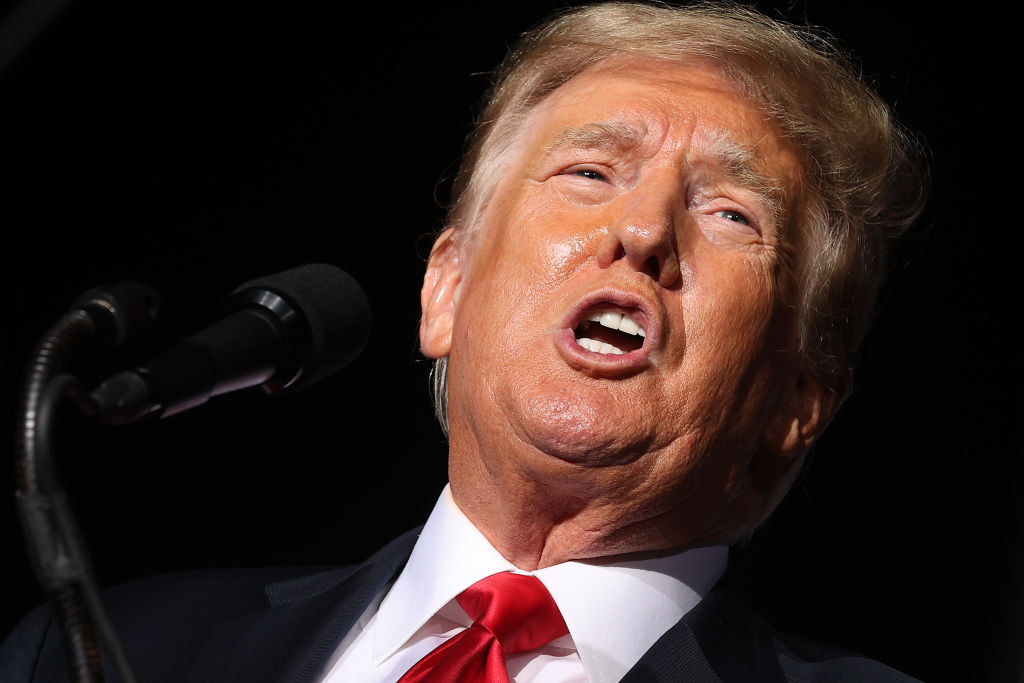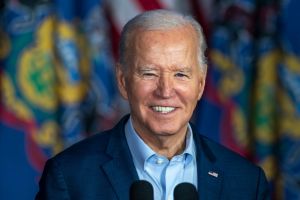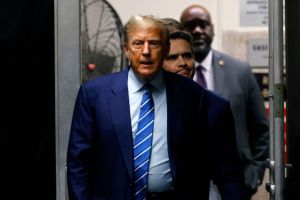This weekend, Donald Trump announced that his nascent digital-media company, Trump Media & Technology Group, had secured $1 billion in investment from various unnamed sources, as part of an effort to become publicly traded. Shortly after, it was revealed that Representative Devin Nunes was set to leave Congress to become the firm’s CEO.
The announcement comes three months after the special-purpose acquisition company called Digital World Acquisition Corporation listed publicly to little fanfare. The SPAC, sponsored by Miami-based financier Patrick Orlando, joined more than 400 other “blank-check” companies that raised money in the first three quarters of 2021. The previously unremarkable company grabbed headlines in mid-October when it announced a planned merger with Trump Media & Technology Group. DWAC surged more than 800 percent, closing at $94.20 one week after the announcement before falling to $43 in late November.
So-called blank-check companies took off during the pandemic, providing a workaround to the onerous process required by traditional IPOs. Because securities laws bar companies from including financial projections in traditional IPO materials, early-stage startups have historically refrained from raising public capital. The advent of the SPAC allowed startups such as DraftKings, Virgin Galactic and Nikola to raise billions despite choppy operating histories.
Trump Media & Technology Group — a company incorporated shortly after Trump left office, with no product or users to speak of — is the Platonic ideal of a SPAC target. The startup aspires to “stand up to the tyranny of Big Tech” and “give a voice to all” with a suite of digital-media products targeting conservatives. The company’s flagship product, “TRUTH Social,” looks to be a right-wing version of Twitter, where users can post “truths” and share “re-truths.” Lacking an ongoing business operation, TMTG used a page of its investor presentation to tout Trump’s large social media following — a first for a company planning to go public.
While the investor materials smack of amateurism, TMTG’s pitch is not entirely unconvincing. Trump has among the largest and most devoted fanbases of anyone in the world, but limited means by which to monetize his brand. Most private investors would hesitate to speculate on Trump’s personal goodwill, and even those willing to fund TMTG would almost certainly do so at a significant discount to the frenzied public markets, where day traders can follow the MAGA crowd piling money into the stock. In a world without SPACs, the massive value of Trump’s fanbase would be difficult to tap: the SPAC merger allowed TMTG to turn Trump’s brand into a publicly traded security.
The media has been largely skeptical of SPACs since last year’s boom, casting them as a way for corporate insiders to scam retail investors. With Trump in the mix, reporters went into overdrive. A New York Times story said the deal “may have skirted securities laws” because the DWAC sponsor reportedly began discussions with Trump in March, six months before the SPAC was listed. Elsewhere, Forbes’s Trump correspondent accused him of “screwing his own supporters while enriching Wall Street elites.”
It was revealed Monday that the SEC and other regulators were looking into the Trump SPAC. Senator Elizabeth Warren had ratcheted up the pressure in a November 17 letter to SEC chairman Gary Gensler urging the agency to investigate the Digital World and Trump’s company. Warren described reports of undisclosed discussions between Orlando and Trump as “a textbook example of a SPAC misleading shareholders and the public about materially important information.” She pointed to handful of hedge funds that invested in the SPAC early and then sold shares after the announcement, arguing that they profited at the expense of retail investors.
The problem for Warren and her acolytes is that most of the spoils have accrued to those who bought into the SPAC after the Trump deal was announced. DWAC’s market capitalization went from roughly $400 million before the TMTG merger to nearly $1.6 billion in late November, well after the initial hype wore off. The SEC’s disclosure rules are designed to prevent publicly listed firms from injuring shareholders by withholding information. While Orlando does appear to have had his eye on Trump’s company before raising funds for DWAC, withholding that information did not hurt any shareholders — if anything, Trump and the Digital World sponsors left money on the table. In any event, early discussions between Orlando and Trump reportedly pertained to a different blank-check company that predated DWAC. As much as Warren would like the SEC to issue a ruling against Trump, regulators will have a hard time making the case that those early talks constitute fraud.
As for TMTG the business, the TRUTH Social product hit road bumps during its initial beta release. After hackers breached the beta version earlier this year, TMTG slowed the initial rollout of the platform, which the company intends to launch early next year.
Despite the choppy rollout, the market is still bullish on the Trump brand. At an enterprise value of roughly $3.5 billion, TMTG is now worth more than Trump’s entire real-estate portfolio. Insofar as the Trump Organization has long trafficked in the former president’s brand, licensing Trump’s name for hotels and golf courses, TMTG is a sensible next step — a direct offering of the brand to investors. As with the golf courses, the actual products on offer by Trump Media are less important than the man selling them.


















